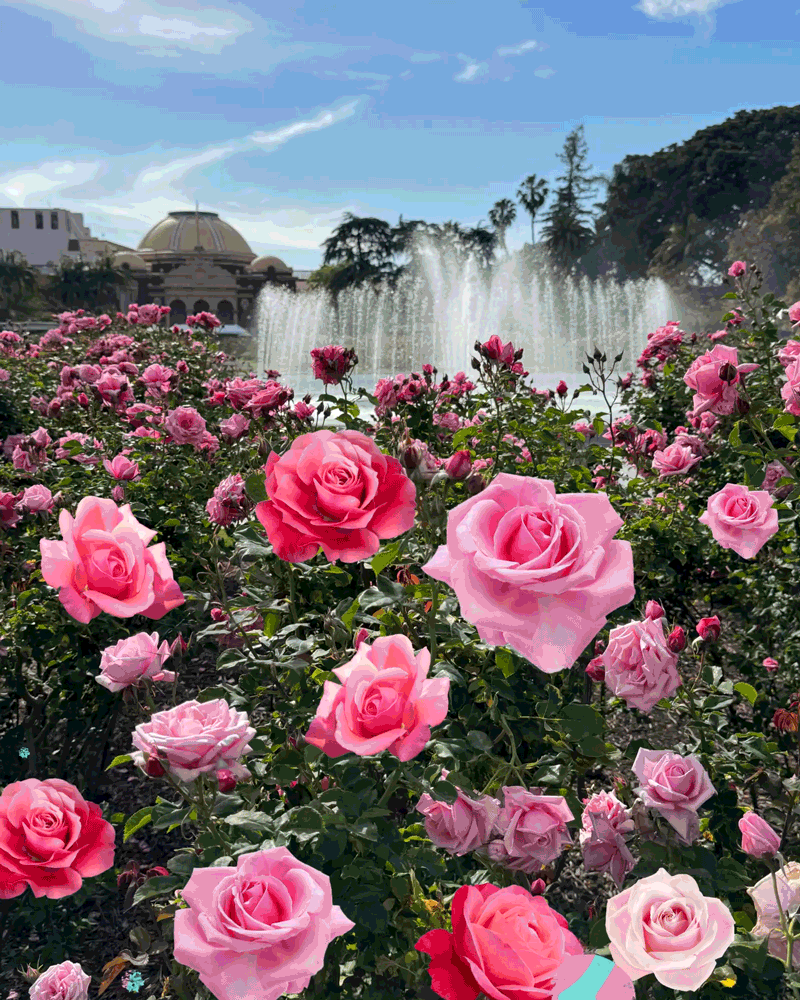Roses, Garlic Make Companionable Bedfellows
- Share via
Time and time again, no matter who I asked or what I read about growing roses, the answer was always the same: “You can’t grow good roses without the use of chemicals and a regular spraying program!”
I had no desire to bring dangerous or toxic chemicals into our yard. We have a small koi pond, not to mention all the birds that I have encouraged to visit our garden, and there was no way I could see to introduce such chemicals without risk to them and other animals, including ourselves.
For some reason, the experts in rose culture have held fast to the belief that the only way to be successful growing roses is with the use of inorganic substances. Questions regarding “organic” alternatives were politely rebuffed. At the risk of a pun, the subject was only discussed “sub-rosa.”
Having always been an “organic gardener” long before it was popular, I found the rose rhetoric I was now hearing an echo of words spoken to me a long time ago.
Having been raised in the days of DDT and the prevailing attitude of “if it’s for sale, it must be safe,” and of being considered a bit eccentric for not embracing the “quick-fix” approach and accepting whatever products the store shelves offered, I was determined to find another way, one I would be comfortable with.
I have never felt secure with bringing into my garden anything that read “Keep out of reach of children and pets.” I have always preferred a more natural approach.
There had to be a way I could incorporate my new-found passion for roses in a “safe garden.” I did not want the true beauty of the rose marred in any way and I did not want to use hazardous chemicals.
*
Finding the answer wasn’t easy and the path always seemed to lead back to the inorganic. So I began reading and rereading long-forgotten books until, at last, I had developed a reasonable system of growing roses organically.
I would like to share with you that part of my system that deals with “insect pest control.”
Although it is said that only about 10% of the insects found in the average garden are damaging to the plants themselves, I swear that 100% of them wanted nothing better than a diet of my roses. It was soon obvious that my ladybugs were going to need a “backup” if we intended to come anywhere close to winning this raging battle.
My weapon of choice in this war came to be garlic. Yes, garlic. Sometimes referred to as “the stinking rose,” garlic has proven to be a true ally in the rose garden.
This is nothing new to organic gardeners and has been mentioned often in everything from old farm magazines to present-day articles and books extolling its virtues as an insect repellent. It has been used to deter aphids, Japanese beetles, snails, caterpillars and many other chewing and sucking insects.
There are scientific reasons for why this might be so, but I don’t want to bore you with a long dissertation, but simply to tell you, it works for me, and to share with you how I use garlic in my own garden.
Companion plantings: Plant three or four garlic cloves two inches deep, spaced equidistant around each rose bush. This is a “circle the wagons” approach enabling the garlic to work as protectant and also “systemic.” The garlic will exude chemical substances that will be taken up and sent throughout the rose system and render each and every part of it unpalatable for any invaders.
For some reason, insect pests find garlic offensive and will search elsewhere for a meal more to their liking. While you are at it, you might want to tuck in a chives plant or two as these are rumored to cure black spot. It can’t hurt and besides, chives are always nice to have on hand for use in the kitchen.
Anti-bug spray: 1 teaspoon garlic powder and 1 tablespoon liquid hand soap mixed in about 1 cup of hot water, microwave on high for 2 minutes and add to 1 gallon of water, mix well and spray insect infected areas daily until pests are gone. Important note: Always give roses a good drink of water before using any spray, to avoid possible leaf burn.
Garlic is not only great at repelling insects above and below the ground, but is said to generally improve the health and well-being of your roses. It is an environmentally safe alternative. Also, if you want to include roses or rose petals in salads or other recipes, you know that they are free of questionable chemicals.
Roses and garlic may seem a strange combination, but they are a great team. Rose pizza anyone?
*
Reader Ideas for ‘Green Thumb’
Readers wishing to share their gardening experiences and advice with others should send queries or manuscripts to Real Estate Editor, Los Angeles Times, Times Mirror Square, Los Angeles, Calif. 90053 or fax them to (213) 237-4712.






